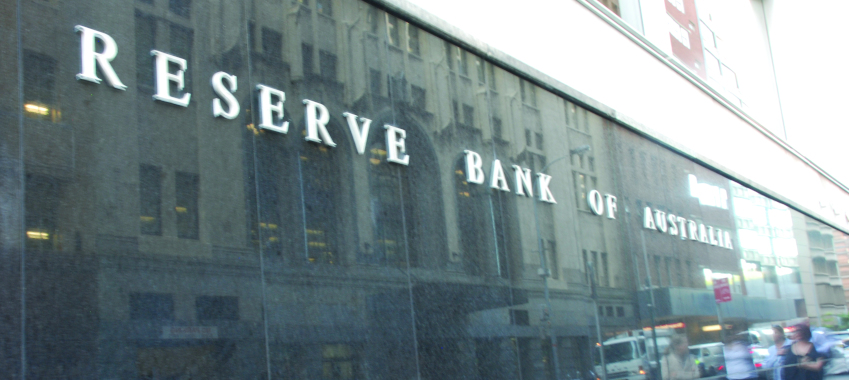
The Reserve Bank has confirmed its cash rate decision for October, amid increasing talks of lending curbs.
The Reserve Bank of Australia (RBA) board kept the cash rate at its record low of 0.1 per cent at its meeting on Tuesday (5 October), in line with its prior stance that it would not raise rates until inflation targets are met and wage growth picks up – which is not expected until 2024.
The last rate movement took place in November, when the RBA slashed it from 0.25 per cent and commenced broad quantitative easing.
Further, the RBA board decided to maintain the 10 basis points target for the April 2024 Australian government bond and to continue on its bond-buying program, purchasing government securities at the rate of $4 billion a week until at least mid-February.
RBA governor Philip Lowe also acknowledged the recent talks around macroprudential controls in his monetary policy decision on Tuesday (5 October), after Treasurer Josh Frydenberg last week confirmed he had discussed ways to slow the housing boom with regulators.
Dr Lowe noted housing prices had continued to rise, although “turnover in some markets has declined following the virus outbreak”.
“The Council of Financial Regulators has been discussing the medium-term risks to macroeconomic stability of rapid credit growth at a time of historically low interest rates,” he stated.
“In this environment, it is important that lending standards are maintained and that loan serviceability buffers are appropriate.”
The RBA has been working with APRA for some months now to monitor the housing and lending markets, having discussed what tools they would use if they felt they needed to intervene.
APRA will soon release information setting out how it will use macroprudential controls, after chair Wayne Byres expressed concerns around a rise in high debt-to-income (DTI) lending in the June quarter.
While Dr Lowe has previously said the curbs could include limits on high DTI or loan-to-value ratio (LVR) lending, CBA chief executive Matt Comyn has suggested raising serviceability rates would be the better reform.
During a recent parliamentary hearing, he warned restricting high LVR lending could disproportionately affect first home buyers.
Similarly, NAB chief economist Alan Oster voiced surprise at the mention of a potential DTI lending limit, saying he would think regulators would use increased rate buffers instead.
But Peter White, managing director of the Finance Brokers Association of Australia (FBAA) stated on Tuesday (5 October) that lifting serviceability rates could see borrowers become “mortgage prisoners”, if they aren’t able to refinance.
“Any measures to curb the boom must have a clear rationale, otherwise there’s a risk of a housing recession,” Mr White said.
“So we would oppose higher floor rates if there are no accompanying measures to ensure borrowers can refinance.”
Lenders, brokers await regulators’ decision
The RBA recently sounded the alarm on surging house prices and debt levels, warning they could lead to cracks forming in the country’s financial stability.
Similarly, the International Monetary Fund (IMF) expressed concerns around housing affordability and financial stability in Australia, pointing to an uptick in high debt-to-income (DTI) mortgages and in investor demand.
Loan Market director Andrea Naughton commented the broking industry is now awaiting the further details of the pending macro controls, but the news has done little so far to deter buyers.
Realestate.com.au economist Paul Ryan added the introduction of tightened lending policy seems like a “foregone conclusion”.
“They’re likely to go after high-debt borrowers but I would guess that they’re going to tweak serviceability buffers as well,” Mr Ryan said.
“Some borrowers who are ticking over six times their income won’t be able to get a loan as large as they currently can. I would expect there’ll be some rationing of those high debt-to-income loans.”
Meanwhile, Finsure managing director Kolenda commented that the regulators will need to ensure they don’t take steps that adversely impact sections of the market, such as first home buyers.
He further warned the timing of any action would be important.
“While it may be prudent for regulators to take some heat out of the property market, they will need to be careful not to pour on too much cold water,” Mr Kolenda said.
Significant GDP hit expected for September quarter
Dr Lowe’s monetary policy decision statement also reflected on how the Delta outbreak has interrupted Australia’s economic recovery, stating “GDP is expected to have materially declined in the September quarter”.
The COVID restrictions had a significant effect on the labour market, with hours worked declining by nearly 4 per cent in August – but the RBA has forecast that many firms will boost their hiring ahead of the expected reopening in NSW and Victoria.
Dr Lowe affirmed that the economic setback should only be temporary, with vaccinations increasing and restrictions set to ease.
“Many businesses are now planning for the easing of restrictions and confidence has held up reasonably well,” he stated.
“There is, however, uncertainty about the timing and pace of the bounce-back and it is likely to be slower than that earlier in the year. Much will depend on the nature and timing of the easing of restrictions on activity.”
The RBA’s central scenario is that the economy will resume growing in the December quarter, before it returns to its pre-Delta path in the second half of next year.
[Related: Owner-occupier lending dragged amid lockdowns]
